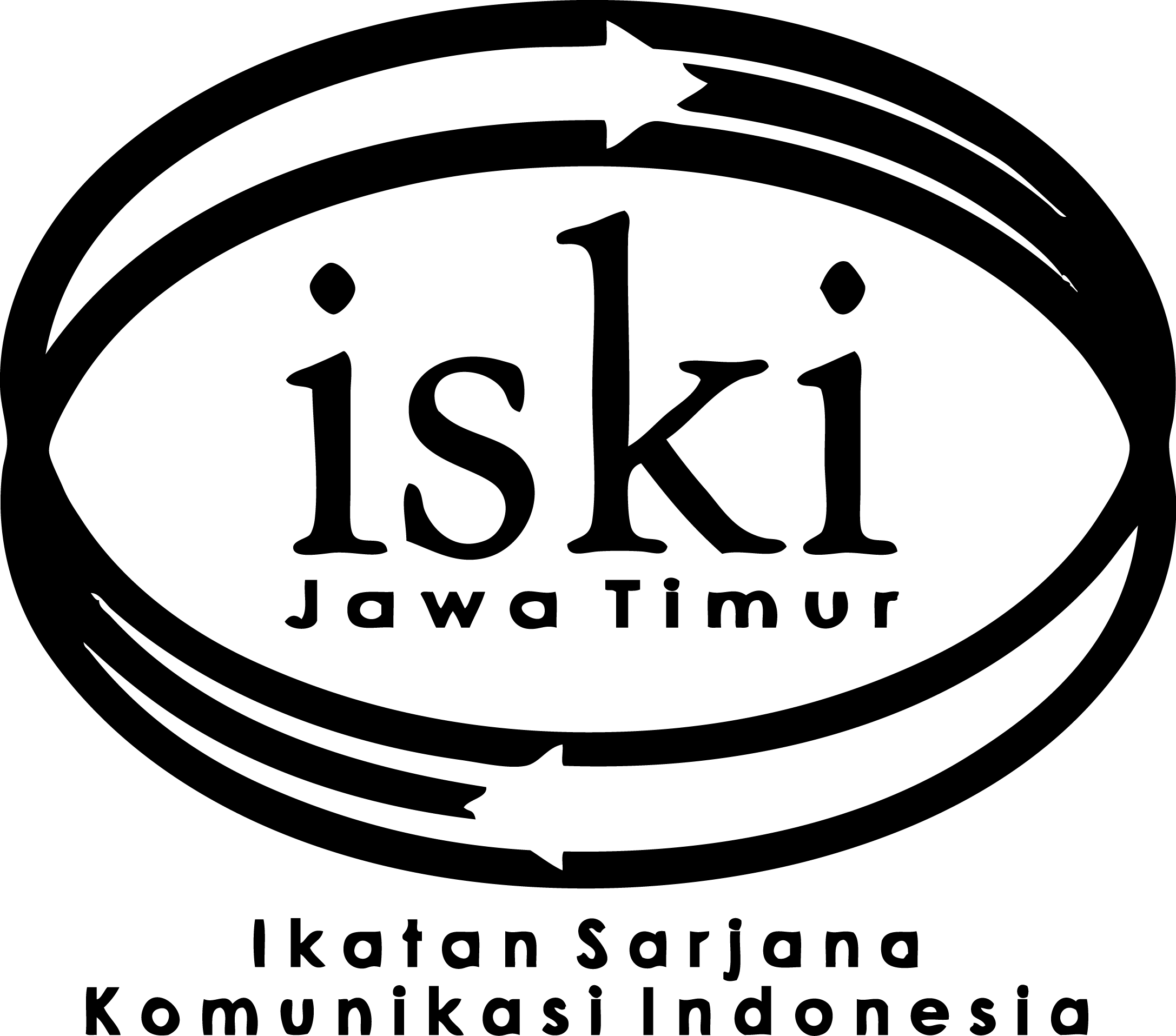DIGITAL ACTIVISM AND THE MOVEMENT TOWARD SOCIAL CHANGE: A SYSTEMATIC LITERATURE REVIEW OF SOCIAL MEDIA MOVEMENTS
Keywords:
Digital Activism, Social Media, Social Change, Political Communication, Systematic ReviewAbstract
This systematic literature review explores the role of social media in digital activism and its significance in mobilizing and raising awareness of social and political issues. By analyzing 26 relevant studies published between 2020 and 2024, this review highlights how social media platforms empower individuals and groups particularly youth to disseminate information, build collective awareness, and engage in public discourse. The findings indicate that digital activism has transformative potential in democratizing communication and amplifying marginalized voices. However, several challenges remain, such as the spread of misinformation, the hijacking of activism for conspiratorial agendas, and the difficulty in measuring the tangible impact of online actions on real-world social and policy change. The study also identifies the most frequently used theories (e.g., Social Movement Theory, Framing Theory, Connective Action), common research methods (qualitative, quantitative, and mixed methods), and thematic contexts such as racial justice, feminism, environmental activism, and misinformation. Most studies rely heavily on Twitter (X) as the primary platform, suggesting a need for cross-platform analysis in future research. This review concludes that while social media is an essential tool for digital activism, further research is required to develop effective communication strategies, assess long-term impacts, and explore activism in the Global South. Ultimately, this study contributes to the growing body of knowledge on media and communication by emphasizing the complex, dynamic, and evolving nature of digital activism in shaping sustainable social change.
References
Alfian, A. (2023). Fenomena New Public Sphere: Disrupsi Media Sosial yang Mempengaruhi Gaya Artikulasi Kepentingan Publik Masa Kini. Megashift Fisipol UGM. https://megashift.fisipol.ugm.ac.id/2023/08/28/fenomena-new-public-sphere-disrupsi-media-sosial-yang-mempengaruhi-gaya-artikulasi-kepentingan-publik-masa-kini/
Asharudin, R. (2023). Analisis Pemikiran Jean Baudrillard tentang Simulasi dan Realitas dalam Konteks Era Digital. Gunung Djati Conference Series, 24, 906–921. https://conferences.uinsgd.ac.id/index.php/gdcs/article/view/1682/1205
Battisti, F., & Bruno, M. (2023). BETWEEN EMPATHY AND SOLIDARITY. HOW CIVIC ACTIVISM INHABITS THE BOUNDARIES OF EUROPE AND CITIZENSHIP ON SOCIAL MEDIA PLATFORMS. Partecipazione e Conflitto, 16(3), 510–530. https://doi.org/10.1285/i20356609v16i3p510
Bennett, W. L., & Segerberg, A. (2012). The logic of connective action: Digital media and the personalization of contentious politics. In The Logic of Connective Action: Digital Media and the Personalization of Contentious Politics (Issue January 2012). https://doi.org/10.1017/CBO9781139198752
Binus University. (2025). Dari hastag ke Aktivisme: Membaca Gerakan Sosial. https://binus.ac.id/malang/communication/2025/01/17/dari-hashtag-ke-aktivisme-membaca-gerakan-sosial/
Budiyono, M. (2016). Media Sosial Dan Komunikasi Politik: Media Sosial Sebagai Komunikasi Politik Menjelang Pilkada Dki Jakarta 2017. Jurnal Komunikasi, 11(1), 47–62. https://doi.org/10.20885/komunikasi.vol11.iss1.art4
Camp, J., & Chien, Y. T. (2000). The internet as public space. ACM SIGCAS Computers and Society, 30(3), 13–19. https://doi.org/10.1145/572241.572244
Clay Shirky. (2010). Cognitive Surplus: How Technology Makes Consumers into Collaborators. Penguin, 2010.
Curran, & James. (2000). Mass Media and Democracy: A Reappraisal (3rd ed.). Arnold.
De Maio, M., & Rodriguez, N. S. (2022). The Use of Twitter to #DefendDACA & DREAMers. Journal of Ethnic and Cultural Studies, 9(2), 49–65. https://doi.org/10.29333/ejecs/968
Di Ronco, A., & Allen-Robertson, J. (2021). Representations of environmental protest on the ground and in the cloud: The NOTAP protests in activist practice and social visual media. Crime, Media, Culture, 17(3), 375–399. https://doi.org/10.1177/1741659020953889
Entman, R. M. (1993). Framing: Toward Clarification of a Fractured Paradigm. Journal of Communication, 43(4), 51–58. https://doi.org/10.1111/j.1460-2466.1993.tb01304.x
Estrella-Ramón, A., Gálvez-Rodríguez, M. del M., & Herrada-Lores, S. (2024). Hashtag activism on Twitter: The effects of who, what, when, and how a tweet is sent for promoting citizens’ engagement with climate change. Communication and the Public. https://doi.org/10.1177/20570473241279330
Faria, S., & Michigan, G. (1994). JEAN BAUDRILLAD (SIMULACRA AND SIMULATION) translated by Sheila Faria Glaser. Ann Arbor The University of Michigan Press.
Fernández-Zubieta, A., Guevara, J. A., Caballero Roldan, R., & Robles, J. M. (2023). Digital Activism Masked―The Fridays for Future Movement and the “Global Day of Climate Action”: Testing Social Function and Framing Typologies of Claims on Twitter. Social Sciences, 12(12). https://doi.org/10.3390/socsci12120676
Field, A., Park, C. Y., Theophilo, A., Watson-Daniels, J., & Tsvetkov, Y. (2022). An analysis of emotions and the prominence of positivity in #BlackLivesMatter tweets. https://doi.org/10.1073/pnas
Fitzgerald, K. M., & Graham, T. (2024). #SaveTheChildren: A pilot study of a social media movement co-opted by conspiracy theorists. Harvard Kennedy School Misinformation Review, 5(3). https://doi.org/10.37016/mr-2020-143
Foster, M. D., & Rathlin, J. (2022). #MeToo as an ‘angry mob’ or in search of meaning? Using language to assess the focus of #MeToo tweets across four events. Computers in Human Behavior Reports, 5. https://doi.org/10.1016/j.chbr.2022.100173
Frieiro, P., Pérez-Martín, S., Añón-Loureiro, L., & Riobóo-Lois, B. (2024). #Madpride: a Movement for Collective Visibility and Empowerment on Social Media X. Convergencia, 31. https://doi.org/10.29101/crcs.v31i0.22200
Giacomozzi, A. I., Vitali, M. M., Presotto, G. C., Vidal, G. P., & de Andrade Gomes, M. (2024). Constructing emotional meanings about Jair Bolsonaro in Brazil during the Covid-19 pandemic on twitter. Discover Global Society, 2(1). https://doi.org/10.1007/s44282-024-00066-4
González-Malabet, M. A., Sanandres Campis, E., May, R., Molinares Guerrero, I. S., & Durán-Oviedo, S. (2023). The hybrid political role of feminism on Twitter during COVID-19: SISMA Mujer in Colombia. Women’s Studies International Forum, 99. https://doi.org/10.1016/j.wsif.2023.102778
Huang, J., & Zhu, J. (2023). Comparing the discourses of #BlackLivesMatter and #StopAsianHate on Twitter: Diversity and emotional and moral sentiments. Cogent Social Sciences, 9(2). https://doi.org/10.1080/23311886.2023.2263944
Ismahani, F. L., Rijal, N. K., & Adzmy, M. F. (2023). Strategi Aktivisme Digital #MeToo Movement di Amerika Serikat. Ganaya : Jurnal Ilmu Sosial Dan Humaniora, 6(1), 69–84. https://doi.org/10.37329/ganaya.v6i1.2004
Jiang, Q., Antwi-Afari, M. F., Fadaie, S., Mi, H. Y., Anwer, S., & Liu, J. (2024). Self-powered wearable Internet of Things sensors for human-machine interfaces: A systematic literature review and science mapping analysis. In Nano Energy (Vol. 131). Elsevier Ltd. https://doi.org/10.1016/j.nanoen.2024.110252
Jones, S. (2002). Virtual Culture: Identity and Communication in Cybersociety. SAGE Publications Ltd. https://doi.org/https://doi.org/10.4135/9781446250303
Joyce, M. (2010). Digital Activism Decoded. In Digital Activism Decoded The New Mechanics of Change.
Karataş, D. (2023). The uses of Twitter in the construction and maintenance of Occupy Gezi’s collective identity. Information Communication and Society, 26(7), 1401–1417. https://doi.org/10.1080/1369118X.2021.2011946
KAVANAGH, J. G. B. & D. (1999). The Third Age of Political Communication: Influences and Features. Political Communication, 16, 209–230. https://doi.org/https://doi.org/10.1080/105846099198596
Lavorgna, A., Carr, L., & Kingdon, A. (2022). To wear or not to wear? Unpacking the #NoMask discourses and conversations on Twitter. SN Social Sciences, 2(12). https://doi.org/10.1007/s43545-022-00556-9
Lindqvist, L., & Lindgren, S. (2023). Mapping an emerging hashtag ecosystem: connective action and interpretive frames in the Swedish #MeToo movement. Feminist Media Studies, 23(8), 4089–4106. https://doi.org/10.1080/14680777.2022.2149604
Lisa M. Kruse, D. R. N. &Jonathan R. F. (2017). Social Media as a Public Sphere? Politics on Social Media. The Sociological Quarterly. https://doi.org/https://doi.org/10.1080/00380253.2017.1383143
Mkono, M., Tham, A., Hughes, K., & Echentille, S. (2023). Horse racing and the growth of hashtag activism. Leisure Studies. https://doi.org/10.1080/02614367.2023.2271182
Nartey, M., & Yu, Y. (2023). A Discourse Analytic Study of #FixTheCountry on Ghanaian Twitter. Social Media and Society, 9(1). https://doi.org/10.1177/20563051221147328
Park, H., & & M.-G. C. (2019). Social Media Activism in the Digital Age: Testing an Integrative Model of Activism on Contentious Issues. Journalism & Mass Communication. https://doi.org/10.1177/1077699019835896
Pradhana, G. A., & Tania, S. (2021). Hyperreality of #blacklivesmatter movement on social media. Jurnal Komunikasi: Malaysian Journal of Communication, 37(3), 288–303. https://doi.org/10.17576/JKMJC-2021-3703-17
Priageng, et al. (2024). ANALISIS DINAMIKA AKTIVISME DIGITAL DI INDONESIA : STUDI KASUS #TOLAKPOLITIKDINASTI DALAM MEMBANGUN KESADARAN PUBLIK Silvana Putri Priageng 1* , Abigail Anak Anugrah 2 , Angelic Jovita Widodo 3 , Lia Wulandari 4 Universitas Pembangunan Nasional “Veteran.” 5(10).
Riyanto, A. D. (2024). Hootsuite (We are Social): Data Digital Indonesia 2024. Andi.Link. https://andi.link/hootsuite-we-are-social-data-digital-indonesia-2024/
Smith, L., & Niker, F. (2021). What Social Media Facilitates, Social Media should Regulate: Duties in the New Public Sphere. Political Quarterly, 92(4), 613–620. https://doi.org/10.1111/1467-923X.13011
Terren, L., & Soler-i-Martí, R. (2021). “Glocal” and Transversal Engagement in Youth Social Movements: A Twitter-Based Case Study of Fridays For Future-Barcelona. Frontiers in Political Science, 3. https://doi.org/10.3389/fpos.2021.635822
Tsuria, R. (2020). Get out of Church! The case of #EmptyThePews: Twitter hashtag between resistance and community. Information (Switzerland), 11(6). https://doi.org/10.3390/info11060335
van Haperen, S., Uitermark, J., & Nicholls, W. (2023). The Swarm versus the Grassroots: places and networks of supporters and opponents of Black Lives Matter on Twitter. Social Movement Studies, 22(2), 171–189. https://doi.org/10.1080/14742837.2022.2031954
Downloads
Published
How to Cite
Issue
Section
License
Copyright (c) 2025 Jurnal Spektrum Komunikasi

This work is licensed under a Creative Commons Attribution-NonCommercial-ShareAlike 4.0 International License.
























